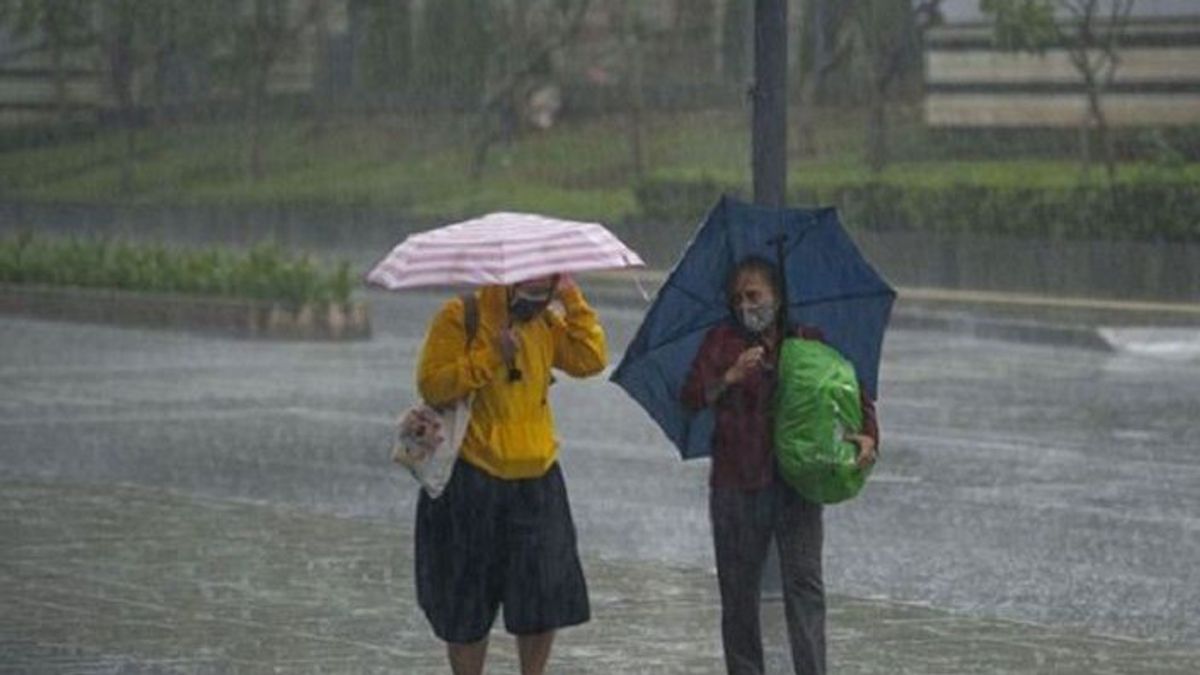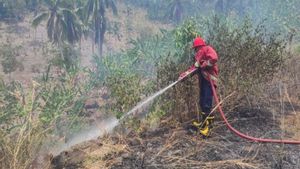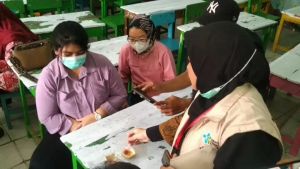JAKARTA - The Meteorology, Climatology and Geophysics Agency (BMKG) has warned about the potential for extreme weather in a number of parts of Indonesia today. Various weather phenomena such as heavy rain, strong winds, storms, forest and land fires (karhutla), and air pollution are threats that must be watched out for Friday, October 13.
According to the BMKG's official website in Jakarta, a number of areas in Indonesia are expected to experience heavy rain with an intensity of more than 50 millimeters. Areas that need to be aware of this heavy rain include Aceh, North Sumatra, West Sumatra, Riau, East Kalimantan, West Papua, and Papua.
In addition to heavy rains, several areas also have the potential to experience strong winds with speeds of more than 45 kilometers per hour. These areas include Aceh, West Java, and West Nusa Tenggara (NTB).
This heavy rain can also be accompanied by lightning, lightning, or even storms, which are expected to hit Aceh, North Sumatra, West Sumatra, Riau, Jambi, Banten, East Kalimantan, Central Sulawesi, and West Papua.
Despite the potential for heavy rain to storms, the Head of BMKG, Dwikorita Karnawati, reminded that Indonesia is still facing a prolonged dry season until October, and is expected to end in November.
This prolonged dry season condition is influenced by the phenomenon of El Nino. El Nino caused changes in rainfall patterns, increased air temperature, and increased hot spots in areas prone to forest and land fires. According to BMKG, El Nino will last until early 2024, but the impact will be reduced when entering the rainy season period which is expected to start in November 2023.
Dwikorita Karnawati explained, "During the rainy season, El Nino's influence is not as strong as it is today. It is hoped that according to the prediction that this long dry season will end in October and start entering the rainy transition period in November."
SEE ALSO:
The prolonged dry season, due to the El Nino phenomenon, has also increased the potential for forest and land fires (karhutla) in several areas, such as Jambi, South Sumatra, East Java, East Nusa Tenggara, Central Kalimantan, and South Kalimantan.
In addition, the hot hot phenomenon related to El Nino also increases the risk of air pollution in several areas, including Jambi, South Sumatra, Central Kalimantan, and South Kalimantan. This situation requires extra vigilance from the public and authorities to maintain air quality and prevent potential disasters that can arise due to extreme weather. BMKG continues to monitor weather developments and provide information needed for public safety.
The English, Chinese, Japanese, Arabic, and French versions are automatically generated by the AI. So there may still be inaccuracies in translating, please always see Indonesian as our main language. (system supported by DigitalSiber.id)


















